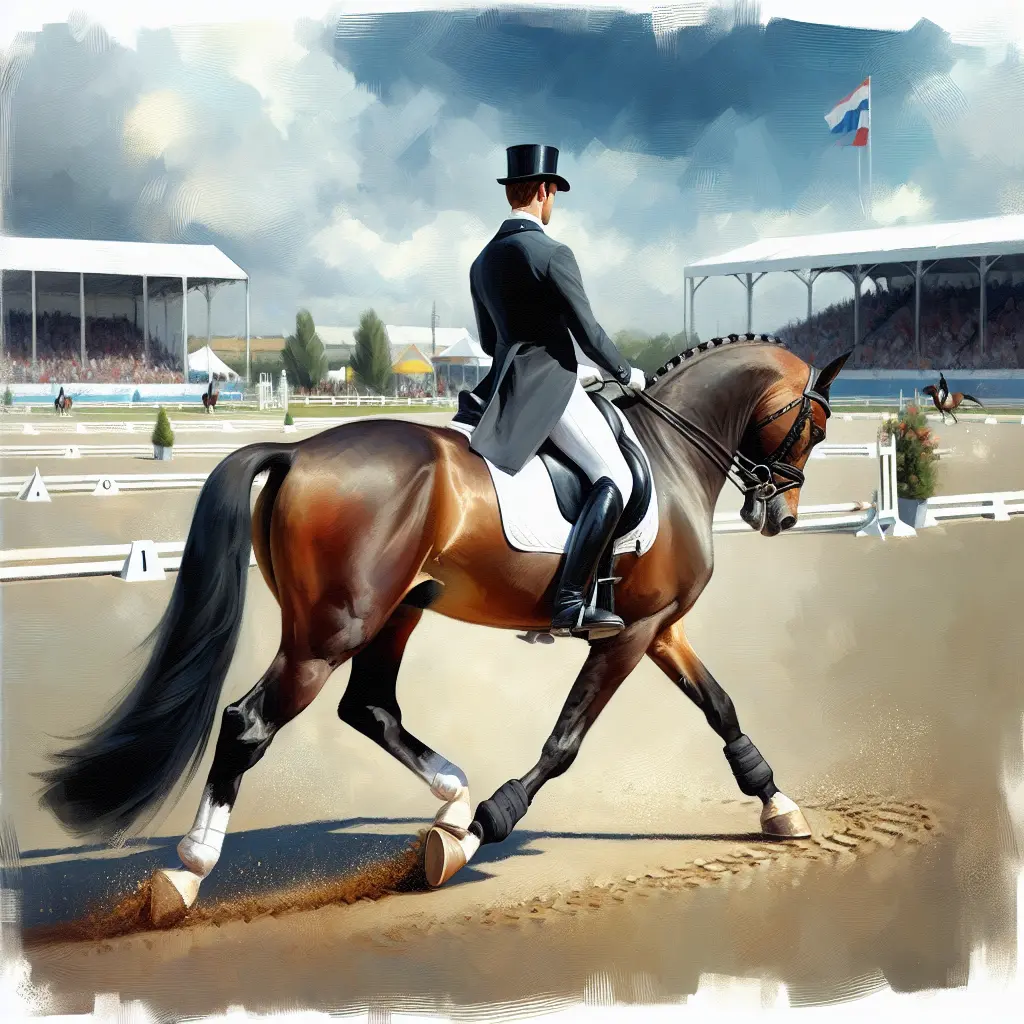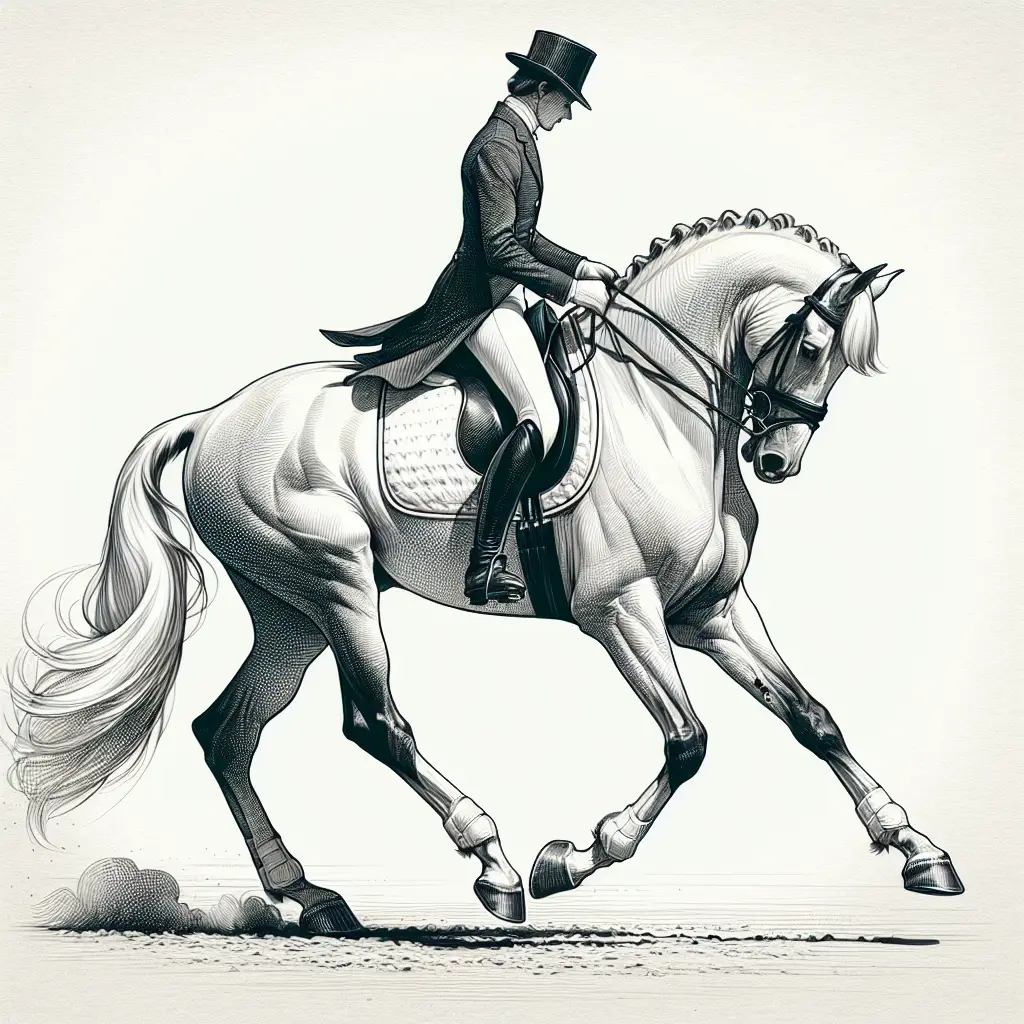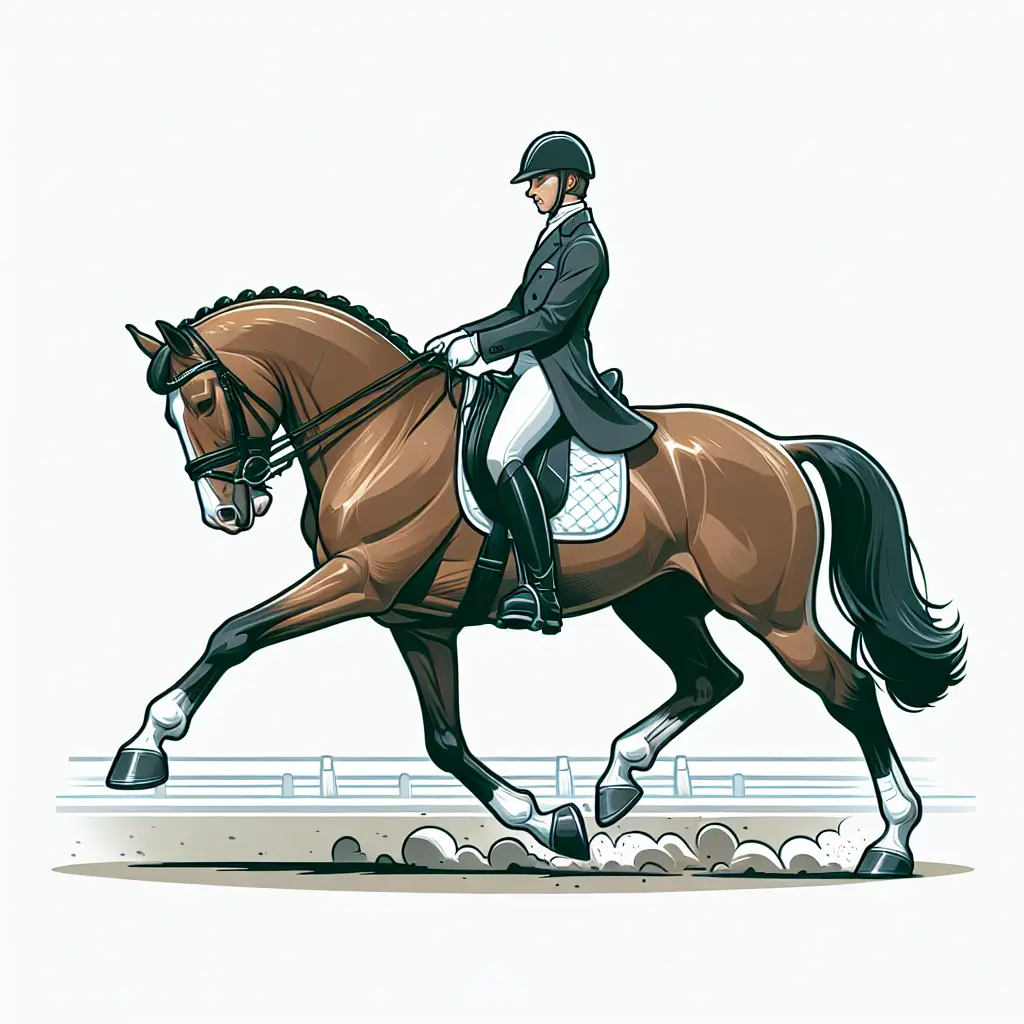Mastering Walk Pirouettes: Techniques and Challenges in Equestrian Training
Walk pirouettes in dressage are akin to swirling artwork on horseback—a dance of grace and precision where the equine athlete and rider must move in harmonious coordination. These movements involve the horse's forehand motion rotating around its hindquarters, demanding careful execution and skill. While mastering walk pirouettes elevates any dressage performance to an art form, the techniques and challenges inherent in this movement provide a rigorous test for even veteran riders.

Understanding Walk Pirouettes
A walk pirouette is essentially executed during a collected walk, where the horse's forelegs create an arc around the stationary hindquarters. The inside hind leg serves as a pivotal anchor, maintaining a controlled rhythm while turning. This movement retains a decisive four-beat gait with a marginal internal bend, creating a visually striking effect for spectators and judges alike.
Techniques for Riding Walk Pirouettes
Preparation
Begin by collecting the walk a few steps before initiating the turn, steering the horse into a shoulder-in position. This pre-emptive alignment of the shoulders sets the stage for a flawless pirouette initiation.
Weight and Balance
Directed weight slightly towards the inside seat bone and stirrup facilitates better stability and guidance during the pirouette, keeping the movement fluid and balanced.

Leg and Rein Aids
Your inside leg is crucial in maintaining the bend and providing propulsion. Simultaneously, gently guide your hands in the pirouette’s direction, leveraging the outside rein against the horse's neck while opening the inside rein to steer direction.
Control with Outside Rein and Leg
Maintain the neck's bend and regulate the walk's collected nature with the outside rein. Ensure the body stays aligned by positioning the outside leg slightly behind the girth to deter the hindquarters from splaying out.
Execution and Completion
Post completion of the turn, straighten the horse and propel forward to preserve balance and rhythm. It's vital to ensure the return to a straight line is as polished as the pirouette itself.
Challenges in Mastering Walk Pirouettes
Coordination and Balance
Successful pirouettes depend heavily on well-synchronized coordination between rider and horse. Any slight misalignment can compromise rhythm and balance, leading to an erratic or failed attempt.
Horse Training
Training a horse to perform this advanced move entails immense patience and a gradual build-up from broader turns towards more compact movements once comfort and skill levels heighten.

Rider Experience
Experience in supplementary dressage techniques, like shoulder-in and half-pass, is indispensable for riders aiming to master walk pirouettes. These elemental movements build agility and responsiveness in both horse and rider[source].
Practical Tips for Overcoming Challenges
Forward and Sideways Steps
Implement alternating practices of moving both forward and sideways. This method conditions the horse's capacity to transition smoothly between movements, preparing it for the complexity of the pirouette[source].
Shoulder-In and Half-Pass
Regularly incorporating shoulder-in and half-pass exercises will not only enhance flexibility but allow the horse to bend with greater ease, crucial for executing tighter pirouettes effectively [source].

Visualization
Visual aids, like imagining the horse slightly rearing during the pirouette, can bolster understanding of the lift required from the hind legs, strengthening this engagement training.
Patience and Consistency
Persistently refining the pirouette's complexity from broad arcs to more compact turns will foster confidence and capability in your horse. Patience is your greatest ally in this intricate dance of dressage performance.
Conclusion
Mastering walk pirouettes is more than an equestrian skill—it's a testament to the bond and communication between horse and rider. Through structured techniques and the patience of repeated practice, any dressage enthusiast can overcome the hurdles this movement presents. By integrating these strategies into your training regimen, the elegance and precision of coveted walk pirouettes are well within reach. Explore our Jodhpur Collection and Everyday Horse Vitamins & Supplements to ensure you and your horse look and feel your best for every practice session.


